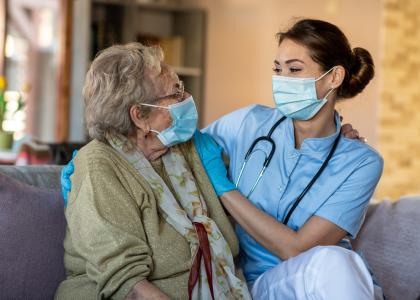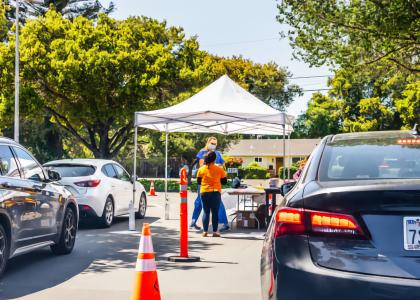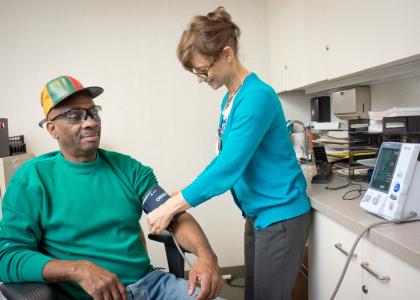Community Dwelling Older Adults
Remote Patient Monitoring of Chronic Disease in Community Health Centers (REDUCE)

The goal of this study is to evaluate the biomedical effects of these RPM interventions, and to gain insights into barriers and facilitators to implementation and adoption of the programs. Our results will inform efforts to ensure that patients in community health centers can benefit from digital RPM interventions and will lay the foundation for large-scale implementation of such interventions.
Digital Technology to Support Adherence to Hypertension Medications for Older Adults with Mild Cognitive Impairment

Mild cognitive impairment (MCI) is characterized by mild impairment in one or more cognitive functions and is associated with an increased risk for failure to take prescribed medications. Hypertension is prevalent among persons with MCI (PwMCI) and nonadherence to medications increases the risk of accelerated cognitive decline through cerebrovascular disease. Adherence is often only 46% or lower among PwMCI.
Establishing the Science Behind Alzheimer's Recruitment Registries: Opportunities for Increasing Diversity and Accelerating Enrollment Into Trials

This project will examine how information sources on COVID-19 and the larger context of the pandemic influence older adults’ perceptions of scientific research and AD, adherence to recommended COVID-19 prevention behaviors, and whether these perceptions vary by racial/ethnic group.
A New Database to Measure the Association Between Income, Race, and Mortality: Inequality in Longevity During and Beyond the COVID-19 Pandemic Disparities

This project will build a public database of mortality rates incorporating socioeconomic and demographic variables across the U.S. population. Researchers will be able to analyze the sources of disparate impacts of COVID-19 on mortality across subgroups, with the aim of understanding how to reduce health inequality.
A Technological Intervention to Improve Nutrition among Older Adult Congregate Meal Participants during COVID-19

This project extends existing congregate meal programming infrastructure and partnerships with Older Adults Technology Services (OATS) to provide a sustainable approach focused on older adult health.
Evaluation of Operation Safer Ground: A Community-Level Rapid Housing Intervention for People Vulnerable to COVID-19

We have the opportunity to examine whether swift provision of housing at the community level mitigates the impact of COVID-19, as well as how doing so may affect the individual, social, and structural factors that contribute to consequences of COVID-19.
Intensifying Community Referrals for Health: The SINCERE Intervention to Address COVID-19 Health Disparities

The objective of this study is to determine whether community service use for those with social needs improves general and COVID-related health outcomes, and whether random assignment to intensive follow-up and collaborative goal setting helps overcome barriers to community service use.
Accelerating Excellence in Translational Science (AXIS) - Administrative Supplement

Reduced routine access to health care providers and prescribed medications, coupled with risky health behaviors during the pandemic, may substantially exasperate existing disparities in healthcare utilization, non-adherence to management of chronic conditions, unhealthy lifestyles, and poorer health outcomes among underserved African American older adults.
Efficacy of a Healthy Lifestyle Intervention to Prevent Depression in Older Spousally-bereaved Adults-Supplement

This proposed Administrative Supplement aims to increase the reach, uptake, and sustainability of our existing behavioral-health intervention to accommodate older spouses bereaved by COVID-19 who are seeking prevention and self-management strategies to manage psychiatric symptoms both during and following the pandemic.
Improving Health Outcomes for an Aging Population

This project supplements an ongoing program project on “Improving Health Outcomes for an Aging Population” by analyzing the impact of the COVID-19 pandemic and its associated economic downturn on population health and mortality.